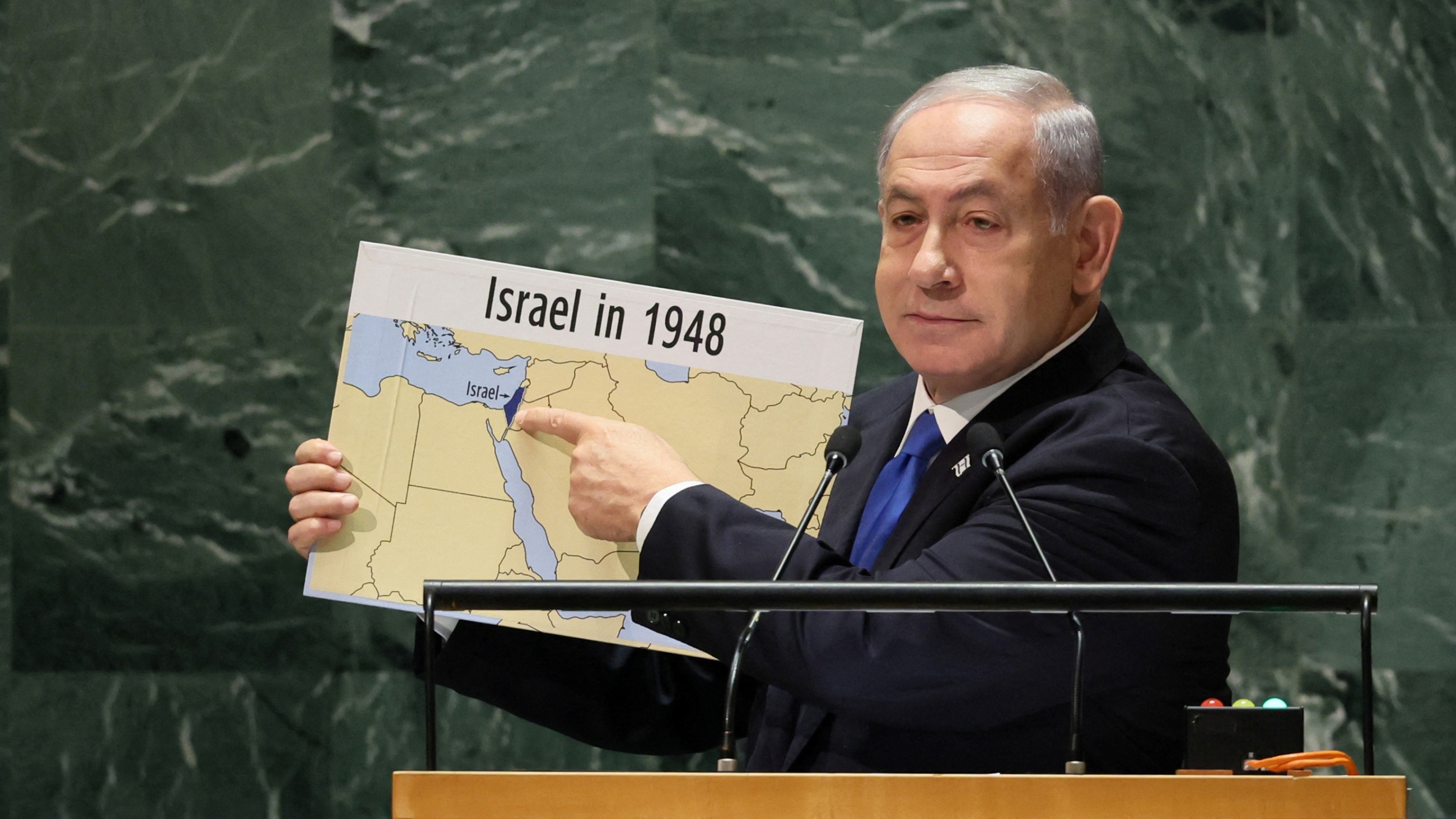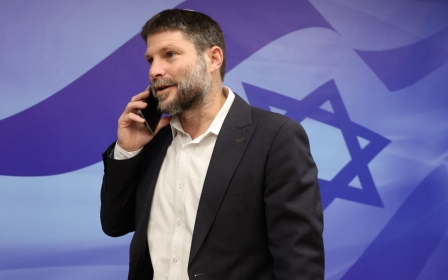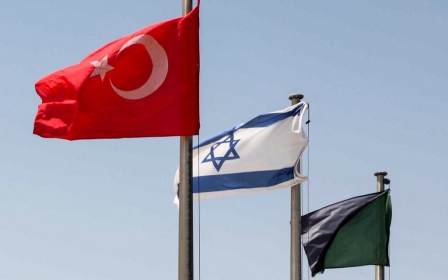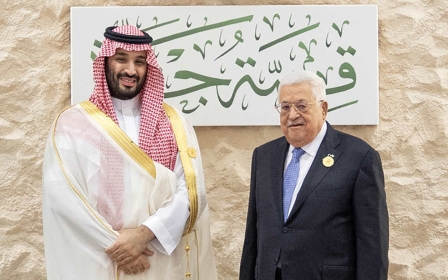Israel-Saudi Arabia: Netanyahu promotes normalisation with new map erasing Palestine

Israeli Prime Minister Benjamin Netanyahu presented a new map erasing Palestine during his speech at the United Nations General Assembly’s (UNGA) 78th session on Friday.
The illustration showed a "new Middle East" wherein the occupied West Bank and Gaza Strip appeared to be part of Israel.
An earlier erroneous map shown by Netanyahu also included the Palestinian territories as part of Israel in 1948.
Israel did not control the West Bank, including East Jerusalem, or the Gaza Strip following its violent creation in 1948 on 80 percent of historic Palestine. It illegally occupied them in 1967, and continues to do so in what is known as the longest occupation in modern history.
The inclusion of Palestinian lands (and sometimes land belonging to Syria and Lebanon) in Israeli maps is common among believers of the concept of Eretz Yisrael - Greater Israel - a key part of ultra-nationalist Zionism that claims all of these lands belong to a Zionist state.
New MEE newsletter: Jerusalem Dispatch
Sign up to get the latest insights and analysis on Israel-Palestine, alongside Turkey Unpacked and other MEE newsletters
Earlier this year, Netanyahu's finance minister, Bezalel Smotrich, spoke from a podium adorned with a map that also included Palestine, Lebanon and Syria as part of Greater Israel. In the same event, he said there was "no such thing as Palestinians".
The use of such maps by Israeli officials comes at a time when Netanyahu's ultra-nationalist government has taken steps that experts say amount to the "de jure annexation" of the occupied West Bank. De jure is a legal term that describes a practice as it is recognised in law.
During the presentation of the map on Friday, Netanyahu enthusiastically promoted the reshaping of the region based on establishing ties with Arab countries, especially Saudi Arabia.
"There's no question: the Abraham Accords heralded the dawn of a new age of peace," he claimed. "I believe we're on the cusp of a more dramatic breakthrough: a historic peace between Israel and Saudi Arabia."
His remarks come amid US-sponsored talks between Israel and Saudi Arabia to establish formal relations.
This week, Saudi Crown Prince Mohammed bin Salman suggested that they are edging closer to such an agreement "every day".
During an interview with Fox News, the crown prince said the "Palestinian issue is very important" in these talks, but did not elaborate further.
When asked what concessions he would expect Israel to give to the Palestinians, he said that was "part of the negotiation".
Netanyahu stressed on Friday that "we must not give the Palestinians a veto over new peace treaties with Arab states".
His speech comes a day after Palestinian President Mahmoud Abbas addressed the UNGA, saying that Middle East peace is not achievable until Palestinians are granted full rights with statehood.
"Those who think that peace can prevail in the Middle East without the Palestinian people enjoying their full legitimate and national rights would be mistaken," Abbas said.
This article is available in French on Middle East Eye French edition.
Middle East Eye delivers independent and unrivalled coverage and analysis of the Middle East, North Africa and beyond. To learn more about republishing this content and the associated fees, please fill out this form. More about MEE can be found here.





